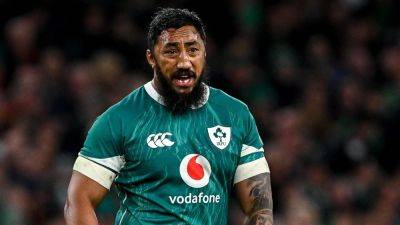Lack of impact off the bench telling in defeat to New Zealand
The defeat to the All Blacks was one of those head scratching moments where Ireland were out-muscled, tactically second best and didn't have the answer to the New-Zealand shaped problem in front of them.
However, on second viewing, when you watch the game more objectively, there are a lot of answers and controllable moments for Ireland to address.
When you think back on the game, Ireland were ahead, admittedly by a single point, after Damien McKenzie’s penalty came back off the post and Jamison Gibson-Park hacked the ball to safety. Nevertheless, the clock was reaching 60 minutes, a substantial portion of the game had been played and Ireland were a point up.
When you lose a game, you hear the hysteria around how poor Ireland were tactically, they should have adapted their game or they should have kicked to the corners etc. Ireland were winning the game and had taken control in the third quarter. You don’t win matches after 60 minutes, but they certainly weren’t out thought up to that point.
There were frustrations. Some attacking plays resulted in poor handling errors and more to the point, their lineout lost another handful of opportunities.
The game had ebbed and flowed up to that 60-minute mark. Ireland started well. New Zealand probably dominated proceedings for most of the first half, but Ireland’s well-worked setpiece power plays put them in good positions.
One of them led to the Bundee Aki offload to Garry Ringrose which caught Jordie Barrett enough for his tackle to see a yellow card, and Ireland won an important penalty to close the gap to just three points.
After half-time, Ireland revved things up, after a fortuitous enough penalty from the kick-off. Their attacking strategy led to Josh van der Flier crossing the








